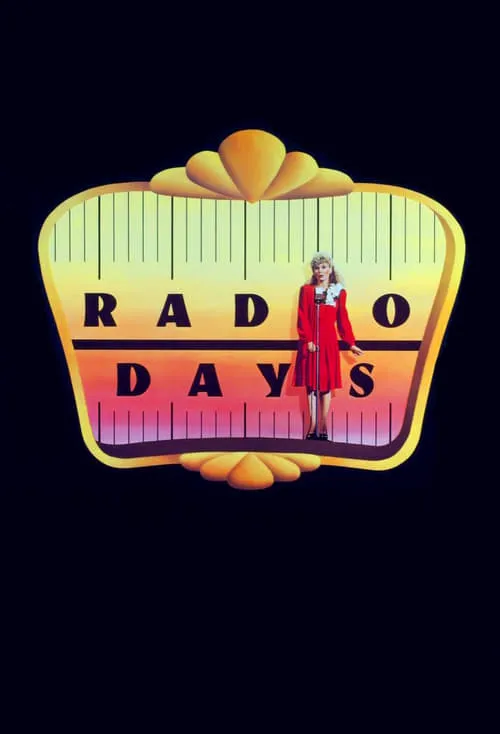Radio Days

Plot
In the nostalgia-tinged world of Woody Allen's "Radio Days," a young boy's coming-of-age tale is inextricably linked to the magic of radio. The story unfolds through the eyes of the narrator, a nostalgic adult who fondly remembers the late 1930s to the early 1940s, a period when radio reigned supreme in American homes, its crackling voice a staple of daily life. As the narrator reminisces, we are transported to the vibrant streets of New York City, where sound waves and imagination blend together in a cinematic tapestry of memories. The year is 1937, and 8-year-old Joe is at the center of our tale. He spends most of his days exploring the world around him, but his imagination is kindled when he listens to the radio. The sounds emanating from his family's radio set become his window to a wider world, introducing him to colorful characters, captivating stories, and unforgettable sounds. Joe's family is loving, but their struggles are evident; his parents worry about making ends meet, and his younger sister, Sally, longs for the attention she craves. Joe's mother, a beautiful and strong-willed woman, holds the family together with her warmth and generosity. She's a kind soul who loves music, a trait that's evident in her fondness for crooners like Bing Crosby and Eddie Cantor. As Joe's love for radio grows, so does his fascination with the stars of the airwaves. He idolizes actors like Orson Welles, who, at the time, was making waves with his haunting radio performances. Joe's imagination runs wild as he envisions Welles as a brave, intrepid adventurer. His favorite show is the "Lux Radio Theatre," which he listens to every week. The show's dramatizations of classic films captivate him, and he can almost see himself on the big screen, starring alongside the likes of Carole Lombard and Fred MacMurray. In between his daydreaming and escapades, Joe must navigate the challenges of childhood, including friendship, sibling rivalry, and first love. He befriends a girl named Sheila, who becomes his confidante and partner in adventure. They share moments of magic, such as when they listen to the radio together, sharing in the thrill of the story unfolding before them. The narrative weaves together contemporary anecdotes and urban legends about radio stars, including the famous 1938 broadcast of Orson Welles' "War of the Worlds," which sparked panic and hysteria across the nation. These vignettes offer a glimpse into the world beyond Joe's neighborhood, where the radio becomes a portal to a universe of wonder and awe. Throughout the film, Woody Allen masterfully captures the nostalgic spirit of a bygone era, when the magic of radio transported listeners to a world of dreams and possibility. As Joe grows older, he begins to see the radio stars as people with their own stories and struggles, rather than just mythical figures on the airwaves. His appreciation for their craft deepens, and he starts to explore the world of radio more seriously. The film culminates on New Year's Eve, 1944, as the United States is still reeling from the effects of World War II. Joe and his friends watch the fireworks together, the sound of the radio broadcast blending with the real-world sounds of celebration and revelry. In this moment, we see a young boy's world expanding, his horizons broadening as he navigates the complex emotions of adolescence. "Radio Days" is a poignant and bittersweet celebration of the power of imagination and the magic of radio. Through Joe's coming-of-age tale, Woody Allen reminds us that the boundaries between reality and fantasy are often blurred, and that the memories we create in our youth stay with us forever, influencing who we become.
Reviews
Recommendations




